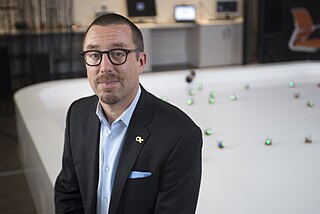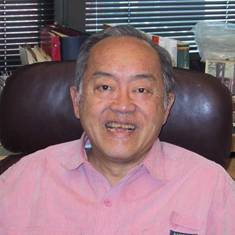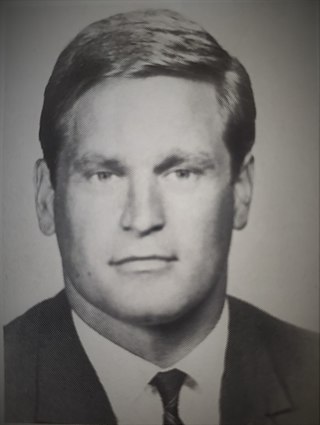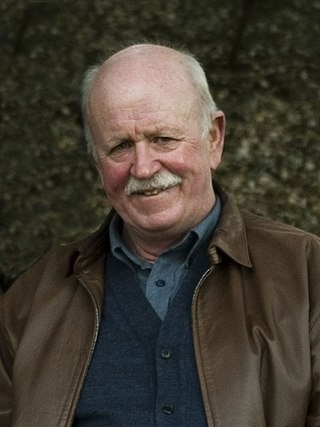Related Research Articles

A multi-agent system is a computerized system composed of multiple interacting intelligent agents. Multi-agent systems can solve problems that are difficult or impossible for an individual agent or a monolithic system to solve. Intelligence may include methodic, functional, procedural approaches, algorithmic search or reinforcement learning.
Babak Hassibi is an Iranian-American electrical engineer, computer scientist, and applied mathematician who is the inaugural Mose and Lillian S. Bohn Professor of Electrical Engineering and Computing and Mathematical Sciences at the California Institute of Technology (Caltech). From 2011 to 2016 he was the Gordon M Binder/Amgen Professor of Electrical Engineering. During 2008-2015 he was the Executive Officer of Electrical Engineering and Associate Director of Information Science and Technology.

Magnus B. Egerstedt is a Swedish-American roboticist who is the Dean of the Henry Samueli School of Engineering at the University of California, Irvine. He was formerly the Steve C. Chaddick School Chair and Professor at the School of Electrical and Computer Engineering, Georgia Institute of Technology.

Yu-Chi "Larry" Ho is a Chinese-American mathematician, control theorist, and a professor at the School of Engineering and Applied Sciences, Harvard University.
Ali Jadbabaie is an Iranian-American systems scientist and decision theorist and the JR East Professor of Engineering at Massachusetts Institute of Technology. Prior to joining MIT, he was the Alfred Fitler Moore Professor of Network Science in the Department of Electrical and Systems Engineering at the University of Pennsylvania and a postdoc at the department of Electrical and Computer Engineering at Yale University under A. Stephen Morse (2001–2002). Jadbabaie is an internationally renowned expert in the control and coordination of multi-robot formations, distributed optimization, network economics, and network science. He is currently the head of the Civil and Environmental Engineering Department at MIT. Previously he served as the Associate director of the Institute for Data, Systems and Society (IDSS) at MIT and was the program Head for the Social and Engineering Systems PhD program. He was a cofounder and director of the Singh Program in Networked & Social Systems Engineering (NETS) at the University of Pennsylvania's School of Engineering and Applied Sciences.
Jeff S. Shamma is an American control theorist. He is the Department Head and Professor of Industrial and Enterprise Systems Engineering at the University of Illinois Urbana-Champaign. Formerly, he was a Professor of Electrical engineering at the King Abdullah University of Science and Technology. Before that, he held the Julian T. Hightower Chair in Systems & Control Systems and Controls at the Georgia Institute of Technology. He is known for his early work in nonlinear and adaptive control, particularly on gain scheduling, robust control, and more recently, distributed systems.
Consensus dynamics or agreement dynamics is an area of research lying at the intersection of systems theory and graph theory. A major topic of investigation is the agreement or consensus problem in multi-agent systems that concerns processes by which a collection of interacting agents achieve a common goal. Networks of agents that exchange information to reach consensus include: physiological systems, gene networks, large-scale energy systems and fleets of vehicles on land, in the air or in space. The agreement protocol or consensus protocol is an unforced dynamical system that is governed by the interconnection topology and the initial condition for each agent. Other problems are the rendezvous problem, synchronization, flocking, formation control. One solution paradigm is distributed constraint reasoning.

Dragoslav D. Šiljak is professor emeritus of Electrical Engineering at Santa Clara University, where he held the title of Benjamin and Mae Swig University Professor. He is best known for developing the mathematical theory and methods for control of complex dynamic systems characterized by large-scale, information structure constraints and uncertainty.

Wassim Michael Haddad is a Lebanese-Greek-American applied mathematician, scientist, and engineer, with research specialization in the areas of dynamical systems and control. His research has led to fundamental breakthroughs in applied mathematics, thermodynamics, stability theory, robust control, dynamical system theory, and neuroscience. Professor Haddad is a member of the faculty of the School of Aerospace Engineering at Georgia Institute of Technology, where he holds the rank of Professor and Chair of the Flight Mechanics and Control Discipline. Dr. Haddad is a member of the Academy of Nonlinear SciencesArchived 2016-03-04 at the Wayback Machine for recognition of paramount contributions to the fields of nonlinear stability theory, nonlinear dynamical systems, and nonlinear control and an IEEE Fellow for contributions to robust, nonlinear, and hybrid control systems.
Peter Corke is an Australian roboticist known for his work on Visual Servoing, field robotics, online education, the online Robot Academy and the Robotics Toolbox and Machine Vision Toolbox for MATLAB. He is currently director of the Australian Research Council Centre of Excellence for Robotic Vision, and a Distinguished Professor of Robotic Vision at Queensland University of Technology. His research is concerned with robotic vision, flying robots and farming robots.

Arthur James Krener is an American mathematician. He is a distinguished visiting professor in the department of applied mathematics at the Naval Postgraduate School. He has made contributions in the areas of control theory, nonlinear control, and stochastic processes.
Debasish Ghose is a professor at Department of Aerospace Engineering, Indian Institute of Science. He is believed to have initiated work on cooperative control in India, having pioneered research on Intelligent control and multi-agents. He founded the first mobile robotics lab in India i.e. Mobile Robotics Laboratory at IISc in 2002. He is known for his early work in swarm intelligence, distributed computing and game theory. His primary research is in Guidance and control of autonomous vehicles, although, current interest is in Computational intelligence i.e. Machine Learning for Aerial Robotics.

René Vidal is a Chilean electrical engineer and computer scientist who is known for his research in machine learning, computer vision, medical image computing, robotics, and control theory. He is the Herschel L. Seder Professor of the Johns Hopkins Department of Biomedical Engineering, and the founding director of the Mathematical Institute for Data Science (MINDS).
Karl Henrik Johansson is a Swedish researcher and best known for his pioneering contributions to networked control systems, cyber-physical systems, and hybrid systems. His research has had particular application impact in transportation, automation, and energy networks. He holds a Chaired Professorship in Networked Control at the KTH Royal Institute of Technology in Stockholm, Sweden. He is Director of KTH Digital Futures.

Munther A. Dahleh is the William Coolidge Professor of electrical engineering and computer science and director of the Massachusetts Institute of Technology (MIT) Institute for Data, Systems, and Society (IDSS).
Dawn Marie Tilbury is an American control theorist whose research topics include logic control, networked control systems, robotics, human–machine systems, and autonomous vehicles. She is a professor of mechanical engineering and of electrical engineering and computer science at the University of Michigan, and the head of the directorate for engineering at the National Science Foundation.
Sonia Martínez Díaz is a Spanish mechanical engineer whose research applies control theory to the coordinated motion of robot swarms and mobile wireless sensor networks. She is a professor in the Department of Mechanical and Aerospace Engineering at the University of California, San Diego.
Yasamin Mostofi is an Iranian-American Scientist and a Professor of electrical and computer engineering at the University of California Santa Barbara. Yasamin’s research is multi-disciplinary, expanding wireless communications, sensing, and control/robotics.
Frank L. Lewis is an American electrical engineer, academic and researcher. He is a professor of electrical engineering, Moncrief-O’Donnell Endowed Chair, and head of Advanced Controls and Sensors Group at The University of Texas at Arlington (UTA). He is a member of UTA Academy of Distinguished Teachers and a charter member of UTA Academy of Distinguished Scholars.
Maamar Bettayeb is a control theorist, educator and inventor. He is the author of publications on understanding the singular value decomposition and model order reduction. Bettayeb is also a promoter of scientific research.
References
- ↑ Olfati-Saber, Reza; Murray, Richard M. (2004). "Consensus problems in networks of agents with switching topology and time-delays" (PDF). IEEE Transactions on Automatic Control. 49 (9): 1520–1533. doi:10.1109/TAC.2004.834113. S2CID 8368512.
- ↑ Olfati-Saber, Reza (2006). "Flocking for multi-agent dynamic systems: algorithms and theory". IEEE Transactions on Automatic Control. 51 (3): 401–420. CiteSeerX 10.1.1.135.5931 . doi:10.1109/TAC.2005.864190. S2CID 517188.
- 1 2 President Honors Outstanding Early-Career Scientists | The White House Archived 2017-01-28 at the Wayback Machine
- 1 2 3 "Reza Olfati-Saber, Dartmouth College, Distributed Data Fusion in Networked Sensing Systems". Boston University, Center for Information & Systems Engineering. 2006. Retrieved 2019-10-22.
- ↑ "Reza Olfati-Saber". The Guardian. 2002-09-11. ISSN 0261-3077 . Retrieved 2019-10-22.